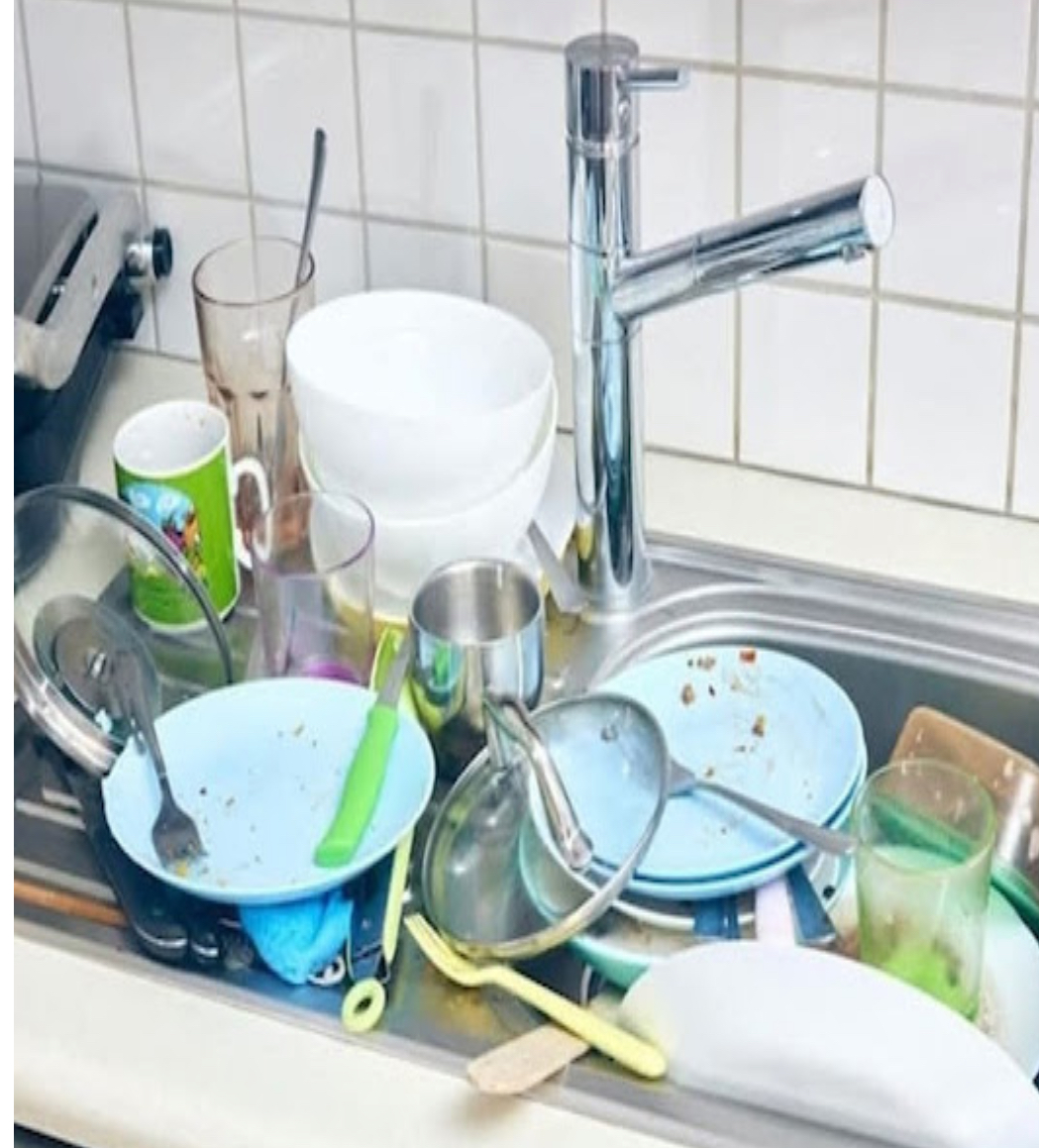We’ve all done it. Walked past the sink, glanced at the pile of dirty dishes, and thought, “I’ll get to that later.” Sometimes we do — and sometimes “later” turns into hours, days, or even longer. But have you ever stopped to wonder why you keep leaving the dishes unwashed? Is it just laziness, or could it point to something deeper?
According to psychology, this common household behavior can actually reveal a lot about our emotional state, personality traits, and even how we cope with the world around us. Let’s dive into what it really means when we avoid doing the dishes.
1. Procrastination and Avoidance
At its core, leaving dishes in the sink is often a simple act of procrastination. Dishwashing is repetitive, unrewarding, and — let’s be honest — boring. For many, the task doesn’t provide an immediate payoff, so it gets pushed to the bottom of the to-do list.
But in psychological terms, this kind of delay is often more than just laziness. Chronic procrastination may be a sign of:
-
Low motivation
-
Task aversion
-
Poor time management
-
Fear of failure or imperfection (even in small tasks)
When people avoid washing dishes regularly, it may be part of a larger pattern of putting off responsibilities that don’t offer instant satisfaction.
2. Emotional Overload and Mental Fatigue
Ever looked at a sink full of dishes and felt completely drained by the thought of dealing with them? You’re not alone.
Mental health experts suggest that when people feel overwhelmed, depressed, anxious, or burned out, even the simplest tasks — like washing a plate — can feel exhausting. The dishes pile up because:
-
There’s no emotional energy left to deal with them
-
The act itself feels insignificant compared to larger problems
-
It’s one more task in a sea of unmanageable stress
In this context, the unwashed dishes aren’t the problem — they’re a symptom. The clutter in the sink can become a physical reflection of emotional and cognitive overload.
3. Rebellion Against Rigid Standards
Not all unwashed dishes are signs of avoidance or distress. Sometimes, they’re a quiet form of rebellion.
For those who grew up in households with strict expectations around cleanliness, or who feel pressured by societal standards of “perfect homes,” leaving the dishes unwashed can be an act of reclaiming personal autonomy. It’s saying:
“I decide how and when I clean — not the rules I was raised with or the expectations of others.”
This can be especially true for people recovering from perfectionism or people-pleasing tendencies. A messy kitchen, in this light, becomes a form of freedom rather than failure.
4. Perfectionism and All-or-Nothing Thinking
Paradoxically, perfectionists might also be guilty of letting the dishes pile up — but not because they don’t care. In fact, they may care too much.
Here’s how it plays out:
-
They tell themselves, “If I can’t do it perfectly right now, I won’t do it at all.”
-
They wait for the “right time” — when they have the time, energy, or mental space to do it exactly how they envision.
-
Meanwhile, the dishes continue to stack up, reinforcing feelings of failure and shame.
This kind of all-or-nothing thinking can be paralyzing, turning a simple task into a mountain of pressure.
5. Shifting Priorities or Intentional Delay
Sometimes, unwashed dishes are not a sign of dysfunction at all — but of deliberate decision-making. You might leave them for later because:
-
You’re prioritizing rest, connection, or creative work
-
You believe chores shouldn’t dominate your free time
-
You know you’ll batch clean them when it makes more sense
In this case, the delay is a conscious choice, not a subconscious cry for help. You’re simply acknowledging that dishes are not always the most urgent thing in life.
So… What Do Your Dishes Say About You?
Unwashed dishes aren’t just about cleanliness — they can be clues about how we manage stress, assert boundaries, or deal with inner conflict. The key takeaway isn’t to shame yourself for the mess, but to become curious about what it might represent.
Next time you pass that growing stack in the sink, ask yourself:
-
Am I avoiding something bigger?
-
Am I emotionally drained?
-
Am I pushing back against pressure or perfectionism?
-
Am I simply choosing rest over routine right now?
Whatever the reason, awareness is the first step toward healthier habits — both in our kitchens and in our minds.
Let’s normalize the fact that sometimes, the dishes can wait — especially when your mental well-being needs to come first. 🧠🍽️
Like this article?
Share it with someone who’s been staring at their sink too long — and remind them, they’re not alone.
